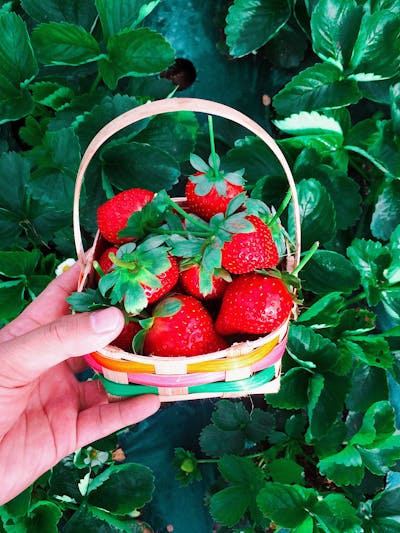Joy and Happiness, What is happiness, What is joy, Understanding the Difference in 2025
Discover the distinction between joy and happiness and learn how to cultivate both for a fulfilling life. Understanding the Difference, what makes people happy, where one can find happiness in life, what contributes to happiness in life, can money make one happy, theories of happiness.
Happiness is an electrifying and elusive state. Philosophers, theologians, psychologists, and even economists have long sought to define it. And since the 1990s, a whole branch of psychology—positive psychology—has been dedicated to pinning it down. More than simply a positive mood, happiness is a state of well-being that encompasses living a good life, one with a sense of meaning and deep contentment.
1. Happiness, Where Can One Find Happiness in Life?

Pleasure and happiness are both wonderful feelings, but they are not quite the same thing. A general sense of contentment and well-being is referred to as happiness, which is a broad concept. A person’s circumstances, relationships, health, and overall level of life pleasure can all have an impact on this. An overall sensation of serenity, peace, and pleasure in life can be experienced as happiness.

Joy is a stronger and more transient emotion that is frequently connected to a particular event or time. It can be characterised as a sensation of extreme pleasure or excitement that follows the completion of a deeply significant or pleasurable experience. Elation, appreciation, and a sense of community are frequently present in states of joy.
Joy is a stronger and more fleeting feeling of pleasant emotions, but happiness is a more long-lasting sense of pleasure and fulfilment. Joy and happiness are crucial for our general health and can be developed through a variety of activities, including gratitude, mindfulness, and strong social ties.
2. What Makes People Happy? Why is it Crucial in Life?
 Various internal and external variables can contribute to happiness. Situations like happy life occurrences, sound finances, and excellent health are examples of external variables. Internal elements include attitudes, feelings, and deeds like mindfulness, kindness, gratitude, and optimistic thinking. According to research, people who are content in life typically experience several advantages.
Various internal and external variables can contribute to happiness. Situations like happy life occurrences, sound finances, and excellent health are examples of external variables. Internal elements include attitudes, feelings, and deeds like mindfulness, kindness, gratitude, and optimistic thinking. According to research, people who are content in life typically experience several advantages.
Justifications Why Happiness is Significant for Better Physical Health.
Research has shown that positive emotions are associated with stronger immune systems, reduced stress hormone levels, and better general health outcomes.
Better relationships: People who are content with their lives tend to be more sociable, have better communication skills, and have deeper bonds with others.
Enhanced success and output: Contentment has been associated with enhanced motivation to attain goals, improved problem-solving abilities, and higher levels of creativity.
Greater resilience: Happy People tend to be more robust in the face of difficulties and failures, recovering from hardships more quickly and successfully.
Greater sense of overall well-being: Contentment, joy and happiness, and satisfaction are just a few of the good emotions that are associated with happiness and can help you feel happier overall. Happiness plays a significant role in life since it can enhance physical health, interpersonal connections, success and productivity, resilience, and general well-being.
3 . What Contributes to Happiness and Fun?
Happiness’s main determinant is subjective and varies from person to person. However, studies have shown that having happy relationships, having a purpose in life, and having a positive outlook on life all play significant roles in boosting happiness. Here are some ideas for having fun and improving your happiness: Develop wholesome connections: Spend time with those who uplift you and whom you love being with. This might apply to close friends, relatives, or coworkers.

Discover meaning and purpose: Take part in activities that help you feel purposeful and meaningful. This could involve giving back to the community, engaging in a passion project, or pursuing a personal objective. Engage in self-care: Look after your physical and mental health by maintaining a healthy weight, getting enough rest, exercising frequently, and scheduling downtime for unwinding and introspection.
Develop an attitude of gratitude: Take some time to consider all the things in your life for which you are grateful. This can improve your sense of happiness and well-being and help you develop a positive mindset. Take part in pleasurable activities: Take part in enjoyable activities, such as reading a book, taking up a new hobby, or going for a walk in the park. Keep in mind that joy and happiness are personal experiences, and what makes one person happy might not make another person happy. It’s critical to give thought to what makes you happy and fulfilled so that you may give those things top priority in your life.
4 . What Constitutes Happiness? Can Money Make One Happy?
A complicated emotional state that includes feeling good feelings like joy, contentment, and satisfaction, as well as a sense of general fulfilment and well-being, is what is known as happiness. Being subjective, it can differ from person to person. While circumstances, relationships, and financial security can all have an impact on happiness, research has shown that internal characteristics like appreciation, positive thinking, and a feeling of purpose can also significantly affect happiness.
To some extent, having money can make you happier, especially if it gives you financial security and the opportunity to meet your fundamental necessities. However, studies have shown that wealth alone does not always lead to enjoyment that goes beyond a particular point. Money does not considerably increase happiness after a certain amount. Other additional components define happiness, such as:

Having strong, enduring, and meaningful connections with others is a sign of positive relationships. Having goals and ideals that are consistent with one’s identity, as well as a sense of fulfilment and meaning in life. Personal growth and development, acquiring new knowledge, skills, and challenges regularly. Maintaining good physical and mental health includes eating right, exercising, getting enough sleep, and taking care of one’s body and mind.
A positive outlook, emphasising good feelings and thoughts, expressing thanks, and developing resilience. In short, happiness is a complicated emotional state that includes having positive feelings, feeling good, and being content, and other internal and external elements that contribute to overall fulfilment and happiness. Although it is not the sole factor and does not guarantee happiness above a certain point, money can help to some extent with happiness.
5 . Theories of Happiness
Researchers and psychologists have put out several hypotheses regarding happiness. The following are a few of the most popular theories:
- Hedonic theory: According to this idea, maximising pleasure and minimising suffering leads to happiness. It emphasises the pursuit of pleasure and uplifting feelings and advises people to look for activities that make them joyful.
- Eudaimonic theory: According to this view, leading a meaningful life results in happiness. The pursuit of personal development, self-actualisation, and a sense of meaning and purpose in life is at the centre of it.
- Self- determination theory: According to this idea, contentment comes from satiating the three fundamental requirements of relatedness, competence, and autonomy. Competence refers to the need for mastery and achievement, relatedness refers to the need for social ties and a sense of belonging, and autonomy refers to the need for control and choice.
- Broaden and build: According to this hypothesis, experiencing happy feelings can help people develop their thought-action repertoires and personal resources, which in turn can improve their well-being and resilience. Even though these theories offer many viewpoints on what factors into happiness, it’s crucial to remember that happiness is a personal experience that differs from person to person. For what makes them happy and what gives them a sense of fulfilment and contentment in life, each person may have their own scale or criterion
6 . Recent Evidence-based Methods for Fostering Pleasure and Fulfilment in Life.
Numerous techniques that have been proven to be reliable for promoting pleasure and fulfilment in life are available. The following are a few of the most recent research-based tactics:
- Gratitude practice: Studies have shown that developing a regular gratitude practice, such as writing thank-you notes or maintaining a gratitude notebook, can improve emotions of happiness and well-being.
- Mindfulness exercises: It has been discovered that mindfulness meditation helps lower stress, anxiety, and depression, as well as elevating feelings of wellbeing
- Social relationships: Happiness and well-being are significantly influenced by establishing and maintaining supportive social ties, such as friendships.
- Kindness: Performing deeds of kindness and selflessness, such as volunteering or volunteering can boost emotions of fulfilment and contentment.
- Physical activity: Studies have shown that regular physical activity is useful in lowering depressive and anxiety symptoms and elevating emotions of happiness and well-being.
- Pursuing goals and passions: Pursuing meaningful goals and passions, together with participating in enjoyable and fulfilling activities, can help one feel as though their life has meaning and purpose. These methods can all be applied to daily life and be beneficial in raising happiness and fulfilment in life
7. What all Adults can Learn from Kids About How to be Happy.
Children naturally can find joy and happiness in life’s little pleasures. Here are some things grown-ups may take from kids to stay happy:
 Being in the now: Children are masters at being in the moment and appreciating it for what it is. Adults can also experience greater happiness by living in the present and appreciating the little things.
Being in the now: Children are masters at being in the moment and appreciating it for what it is. Adults can also experience greater happiness by living in the present and appreciating the little things.
- Embracing wonder and curiosity: Children have a natural sense of wonder and curiosity about the world. Adults can develop a sense of wonder and curiosity, which can result in higher levels of happiness and fulfilment.
- Having fun and being creative: Children are, by nature, fun and creative, which can enrich their lives and provide them with delight. Playful and creative activities can be beneficial for adults as well because they can lower stress and encourage a pleasant mood.
- Open emotional expression: Children don’t hold back when it comes to expressing their feelings, which can help them absorb and manage challenging emotions. Adults can also gain by being open with their emotions and asking for help when they need it.
- Establishing positive relationships: Children naturally form good ties with other people and enjoy spending time with their loved ones.

- Prioritising healthy connections and spending time with encouraging friends and family members can also be beneficial for adults. In general, adults can learn a lot from kids about maintaining a positive outlook on life and finding satisfaction in the little things.
 8. Happiness and Pleasures of Youth
8. Happiness and Pleasures of Youth
While it is impossible to fully go back in time or duplicate the precise joy and delights of childhood in later life, it is possible to nurture experiences and emotions that are comparable to those from childhood. Childhood is a time of discovery, learning, and play, and many of the activities that make childhood happy, like play, creativity and social interactions, can also make adulthood happy and fulfilling. Some methods for generating joy and happiness later in life include:
Taking part in enjoyable activities, such as hobbies, creative endeavours, and physical endeavours.
Fostering social ties and relationships with others, including friends, family, and local organisations.
Expressing thanks and emphasising the good feelings and experiences. Practising mindfulness and meditation to develop a sense of present-moment awareness and presence.
Performing deeds of kindness and service for others can give life meaning and purpose. While it might not be feasible to recreate the feelings and experiences of childhood, it is still possible to make fresh and fulfilling experiences that will make people happy and content in the future.
9 . Do Species of Birds/Animals Share Some Level of Happiness?
It is generally accepted that animals are capable of experiencing a variety of emotions, including happiness. Happiness is a complex emotion that includes feelings of contentment, fulfilment, and well-being. There is evidence to support the idea that animals may enjoy themselves and feel good things like happiness and fulfilment.
For instance, research has demonstrated that animals play, which shows that they enjoy and enjoy particular behaviours. When their fundamental requirements are satisfied, such as when they have access to food, water, shelter, and social ties, animals also exhibit indicators of contentment.
 It’s crucial to remember that animals don’t feel happiness the same way that people do. Their life experiences mould them. Their potential for emotional experience may be constrained by their specific biological and environmental variables, as well as by their cognitive capacities. Overall, it is impossible to directly compare an animal’s feeling of happiness to that of a human, even though they may do so in their unique way.
It’s crucial to remember that animals don’t feel happiness the same way that people do. Their life experiences mould them. Their potential for emotional experience may be constrained by their specific biological and environmental variables, as well as by their cognitive capacities. Overall, it is impossible to directly compare an animal’s feeling of happiness to that of a human, even though they may do so in their unique way.
10. Part of Nature in bringing Ultimate Happiness to one’s Life
True happiness for everyone in the world can be attained with the help of nature. According to research, being around nature can improve one’s mental health and well-being and increase emotions of contentment and fulfilment. Happiness can be enhanced by nature:
- Tension reduction: It has been demonstrated that spending time in nature reduces tension and encourages relaxation, which can lead to increased emotions of happiness and well-being.

- Connection to the natural world: Having a sense of wonder, awe, and thankfulness for the world around us can increase our feelings of happiness and fulfilment.

- Physical activity: Performing physical exercise outdoors, Hiking and gardening are examples of activities that can improve physical health as well as feelings of enjoyment and well-being.

- Social connections: Spending time in the outdoors with others can foster a sense of community and positive social relationships, which can lead to increased feelings of happiness and well-being.

- Environmental stewardship can foster a sense of purpose and meaning, which can lead to increased feelings of happiness and fulfilment. Examples of this include conservation initiatives and sustainable living practices. Overall, nature should be prioritised as a key component of public health and well-being programs since it may play a significant role in fostering happiness and well-being for all people.
11. Giving and Sharing are Much Healthier than Constantly Yearning for MORE in life.
Sharing and giving can lead to greater fulfilment and happiness than continuously yearning for more or pleading with others for things in life. Here are a few explanations:
- Promotes connections: Giving and sharing can foster connections with others and feelings of closeness, which can lead to increased happiness and well-being.

- Promotes greater happiness and fulfilment in life: By giving and sharing, we create feelings of thankfulness for what we have. Giving and sharing can assist in fostering a sense of purpose and meaning in life, which can lead to increased happiness.
- Boosts self-esteem: Giving and sharing can make us feel good about ourselves and our capacity to have a positive impact on the world, which can lead to higher levels of self-esteem and confidence.
- Encourages a sense of wealth: Giving and sharing help us to develop a sense of abundance and success rather than a persistent sense of scarcity or need. Overall, giving and sharing can raise our levels of happiness and fulfilment in life and can also assist us in forming strong bonds with others, expressing our thanks more, generating a sense of abundance, and fostering a sense of purpose.
12. Gratitude and patience create and sustain happiness in life
Yes, patience, gratitude, and contentment are frequently regarded as key character traits that contribute to and sustain happiness in life. Being content means being happy and fulfilled with what you already have, rather than always wanting more.
Developing a sense of contentment can help you feel less stressed and anxious and more grateful and satisfied. Focusing on the good things in life and expressing gratitude are both components of thankfulness or gratitude.
According to research, practising thankfulness might result in greater feelings of happiness and well-being. Patience is the capacity to endure trying circumstances and postpone pleasure in the pursuit of long-term objectives. Being patient can be beneficial. Help boost resilience, lessen stress, and foster good interpersonal interactions. These characteristics are essential components of a happy and satisfying life, even though they are not the only things that make people happy. People can build a sense of well-being and satisfaction that can aid in sustaining happiness over time by practising contentment, gratitude, and patience.
Discover the distinction between joy and happiness and learn how to cultivate both for a fulfilling life.
Top 15 High Protein Vegan Recipes: No More Eating a Chicken a Day


